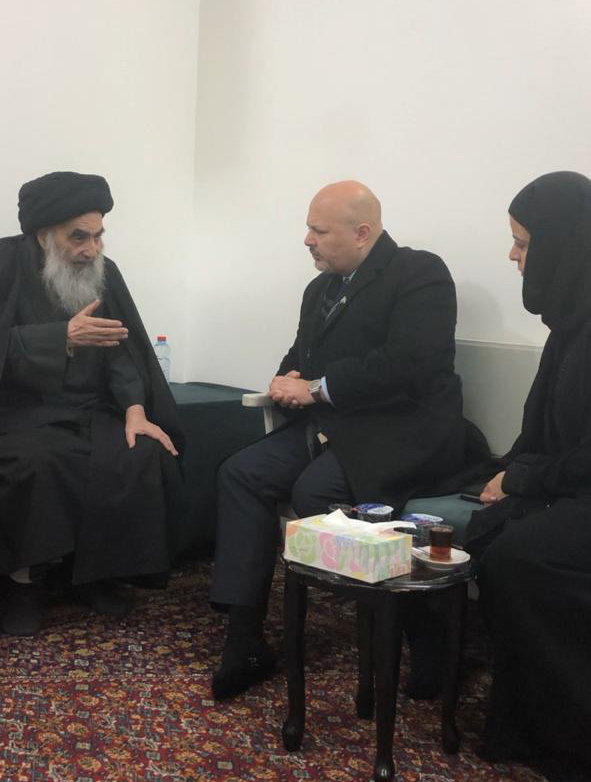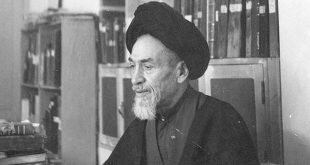The head of the UN team tasked to investigate ISIS crimes in Iraq, primarily against Yezidis, met with the top Shiite cleric in the country on Wednesday.
British lawyer Karim Asad Ahmad Khan traveled to the holy city of Najaf to meet with Grand Ayatollah Ali al-Sistani.
According to the senior cleric’s office, Ayatollah Sistani in this meeting in Najaf underlined the need for bringing the terrorists to justice and making the world aware of the danger Daesh poses to humanity.
He also stressed the importance of supporting the witnesses who cooperate with the UN investigative team, especially those living in areas where they could be targeted by Daesh.
UN Secretary-General Antonio Guterres in May appointed Khan as the Special Adviser and Head of the Investigative Team established pursuant to Security Council resolution 2379 (2017), to support domestic efforts to hold Daesh accountable by collecting, preserving, and storing evidence in Iraq of acts that may amount to war crimes, crimes against humanity and genocide committed by the terrorist group.
Daesh militants made swift advances in much of northern and western Iraq over the summer of 2014, after capturing large swaths of northern Syria.
However, a combination of concentrated attacks by the Iraqi military and the volunteer forces, who rushed to take arms after Ayatollah Sistani issued a fatwa calling for fight against the militants, led to the defeat of the group.
In November 2017, the self-proclaimed caliphate of Daesh collapsed after Syrian and Iraqi armed forces and their allies managed to recapture the terror group’s last strongholds in the two Arab countries.
 Ijtihad Network Being Wise and Faithful Muslim in the Contemporary World
Ijtihad Network Being Wise and Faithful Muslim in the Contemporary World

